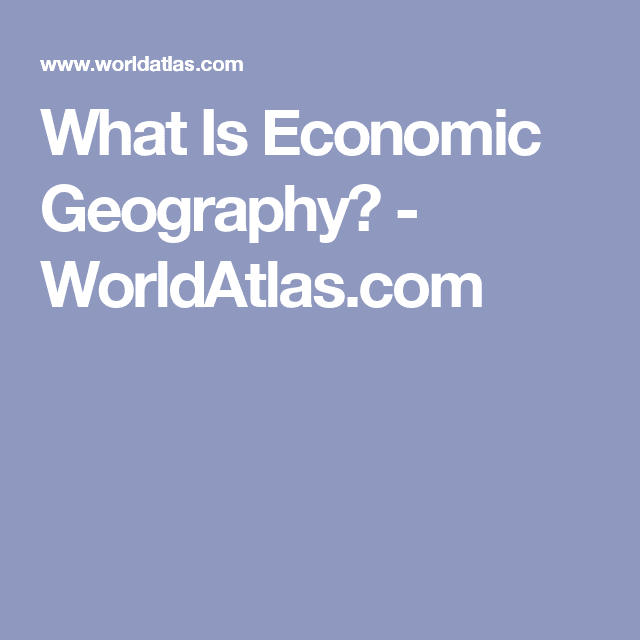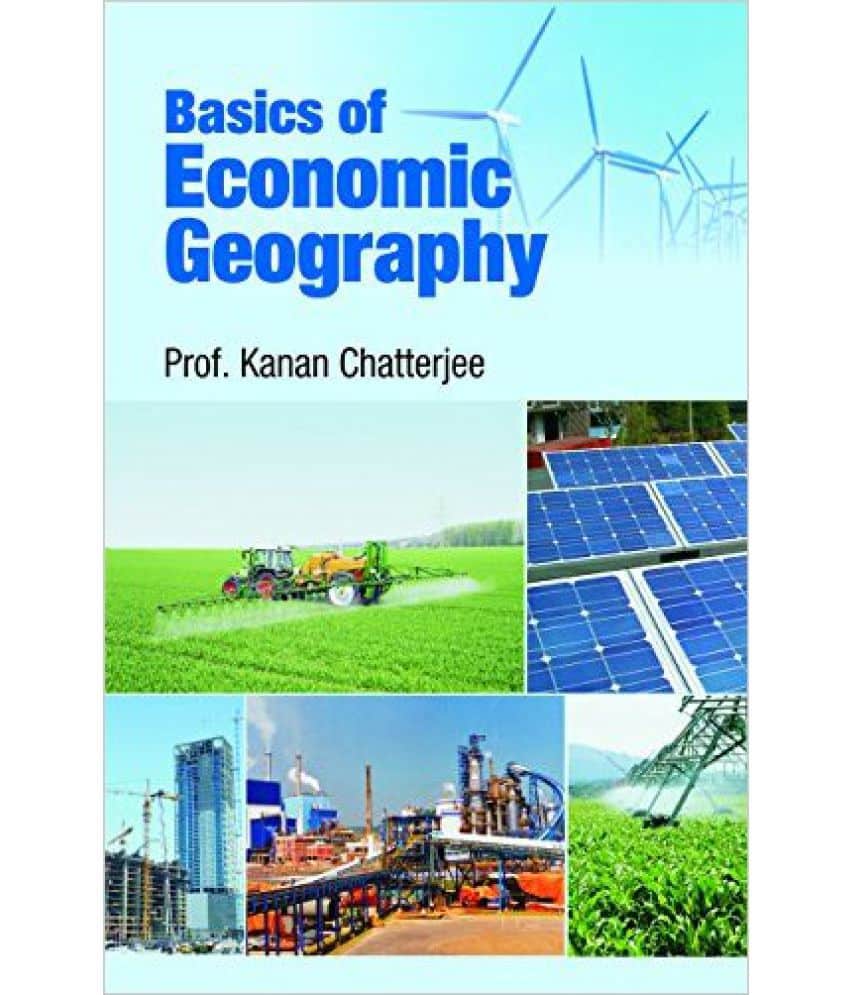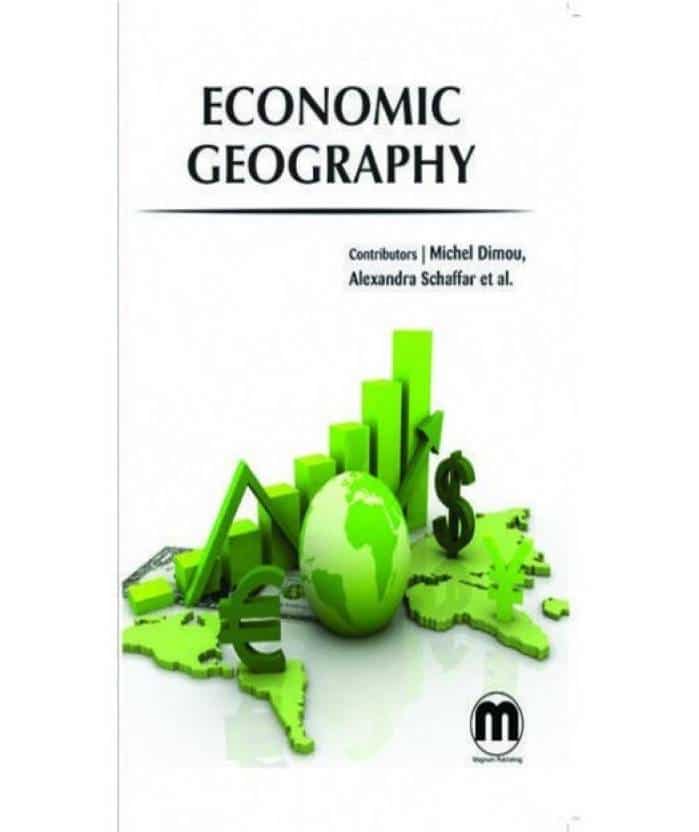Interface Between Economic And Geography
Economic geography is concerned with rational development and testing of theories that explain and predict the spatial distribution and location of production exchange and consumption of goods and services.
Geography on the other hand is concerned with understanding of how spatial systems operates, that is, the use of resources, determining location, patterning of space and growth of regions, while economic is concerned with how economic systems operates, that is, the mechanisms of allocating resources, determining prices, distribution of incomes and promoting economic growth and development. Economic geography emphasis the need for control in the spatial allocation of resources it involves the study of spatial organization. An economic system is spatial and it is the primary concern of the economic geography. Economic geography deals with the geography of mans struggle to make a living as such, it concerns itself with the production of the social and material conditions of man existence. It is firmly a social science which has been primarily placed upon the production and use of the environmental and manmade materials and conditions of the earth.
The History Of Economic Geography
The study of economic geography has a long history. One of the first scholars to examine the subject was German economist Johann Heinrich von Thünen, who wrote a book called The Isolated State in 1826. In this work, von Thünen examined how different factors affected where businesses were located.
Since then, economic geography has evolved and grown to become its distinct field of study. Today, economic geographers use a variety of methods to examine the distribution of economic activity across the globe.
Relevance And Practical Application
Knowledge from the study of economic geography enables one examine their production in relation to their environment whereas it could bring about disparity from different regions. The disparity is majorly eliminated by mobilization of resources and a clear understanding of the inter-relationship between man and environment.Economic geography is a broad discipline and an essential element to both geographers as well as economists. Different researchers use different methods in its study like the neoclassical theorists who focus on quantitative methods while the Marxist political theory and the new economic geography takes into account all aspects to do with social, cultural, and institutional factors. Therefore it is an important factor when understood and properly used, it is very beneficial for productivity.
Read Also: How Do You Find Work In Physics
Definitions Of Economics Geography:
Different geographers have forwarded the definition of Economics geography in a different way. However, all the definitions seem to converge at a point. Therefore, it may be summaries as the study of mans economic activities with relation to his environment, physical and culture. However, it would be interesting to have a brief review of how individual authorities deal with this matter.
According to Dudley Stamp, Economic Geography involves consideration of the geographical and other factors which influence mans productivity, but only in limited depths, so far as they are connected with production and trade.
Professor E. W. Zimmermann pointed out that, Economic Geography deals with the economic life of the man with relation to the environment.
S. Thoman in his book The Geography of Economic Activity has remarked, Economic Geography may be defined as an inquiry into the production, exchange, and consumption of goods by people in different areas of the world. Particular emphasis is placed on the location of economic activity upon asking just why economic functions are situated where they are in this world.
MacFarlane describes, Economic Geography as the study of influence exerted on the economic activity of man by his physical environment, and more specifically by the form and structure of the surface of the land, the climatic conditions which prevail upon it and the spatial relations in which its different regions stand to one another.
History Of Economic Geography

The comprehensive knowledge of geography was enhanced several years back due to the development of maps and travel journals which had various descriptions of the native people, climate, landscape, and the productivity levels of various locations, classified as a science of cartography. Due to the vast knowledge provided by these journals, transcontinental trade patterns were established which led to the development of the economic theory and practice from the 16th century. The further popularization of geographical knowledge was contributed to during the Second World War while the growth of economic geography as a discipline was seen after the war during the recovery and development of the economy. Various theories like the climatic determinism by Ellsworth Huntington and the Central place theory of core and periphery by Walter Christaller also played a major role.
Read Also: What Does Altogether Mean In Math
Log In To Taylor & Francis Online
- 48 hours access to article PDF & online version
- Article PDF can be downloaded
- Article PDF can be printed
Purchase access via tokens
- Choose from packages of 10, 20, and 30 tokens
- Can use on articles across multiple libraries & subject collections
- Article PDFs can be downloaded & printed
From EUR 400.00
Definition Of Economic Geography:
Economic Geography is the study of man and his economic activities under varying sets of conditions. Geographers are of different opinions as regarding the definition of the subject.
In fact, different authorities have defined Economic Geography in a variety of ways but their opinions converge at a common point of accord, where it means the study of the spatial distribution of mans economic activities in relation to its environment, be it physical or non-physical.
ADVERTISEMENTS:
According to Dudley Stamp, Economic Geography involves consideration of the geographical and other factors which influence mans productivity, but only in limited depths, so far as they are connected with production and trade.
Professor E. W. Zimmermann pointed out that, Economic Geography deals with the economic life of man with relation to environment.
R. S. Thoman in his book The Geography of Economic Activity has remarked, Economic Geography may be defined as an enquiry into the production, exchange and consumption of goods by people in different areas of the world. Particular emphasis is placed on the location of economic activity upon asking just why economic functions are situated where they are in this world.
ADVERTISEMENTS:
Surpassing all, Chisholmes says that Economic Geography is presumed to form some reasonable estimate of the future course of commercial development, as determined by geographical factors.
Don’t Miss: What Is Br In Chemistry
Ological Approaches In Modern Geography
Different approaches have been employed in the study of modern economic geography these include
- Models and Theories
- Scientific methods of enquiry
- Quantitative analysis , while others include
- Iconic models i.e. miniature physical models
- Analogue models, more abstract photo plans. For example, topographic map
- Symbolic models, most abstract properties of objects represented in symbols for example mathematic models such as formula and equations.
What Is Globalization In The Economy
Financial Definition of globalization. What It Is. Globalization is the integration of national economies through trade, investment, capital flow, labor migration, and technology. How It Works. Globalization results from the removal of barriers between national economies to encourage the flow of goods, services, capital, and labor.
Read Also: What Is Hypotonic In Biology
Branches Of Economic Geography
What Drives Territorial Development
Since the birth of economic geography as a sub-discipline, researchers have looked at several different geographical factors that drive territorial development.
Initially, all economies across the world were dominated by agriculture and fishing. This meant that the focus was on climate and natural-resource endowments, as well as the supply of labor.
Since the turn of the century, economic geographers have added social endowments to their list of interests, including institutions, networks, knowledge and culture.
Read Also: How To Get Better At Mental Math
Models Are Used Based On Two Ways
The Nature Of Competition In Space

28The debate about whether the general competitive equilibrium model is comprehensive enough to fully reflect the working of the spatial economy has a long history. When Isard critically discussed general equilibrium analysis, he was mainly concerned with Hickss Value and Capital published in 1939. Isard concluded that Hicks confined himself to a wonderland of no spatial dimensions. He further elaborated this point on page 477 in which he recorded a conversation he had with Schumpeter, who defended the Hicksian analysis, maintaining that transport cost is implicitly contained in production cost, and thus Hicksian analysis is sufficiently comprehensive. In contrast, Isard argued that: production theory cannot justifiably treat certain production costs explicitly and other important ones implicitly in order to avoid the obstacles to analysis which the latter present. Schumpeters argument is a typical example of how general economists viewed the role of space in economic theory.
Recommended Reading: How To Do Math Conversion Problems
Topics Within Economic Geography
Theoretical economic geography is the broadest of the branches and geographers within that subdivision mainly focus on building new theories for how the world’s economy is arranged. Regional economic geography looks at the economies of specific regions around the world. These geographers look at local development as well as the relationships that specific regions have with other areas. Historical economic geographers look at the historical development of an area to understand their economies. Behavioral economic geographers focus on an area’s people and their decisions to study the economy.
Critical economic geography is the final topic of study. It developed out of critical geography and geographers in this field attempt to study economic geography without using the traditional methods listed above. For example, critical economic geographers often look at economic inequalities and the dominance of one region over another and how that dominance impacts the development of economies.
In addition to studying these different topics, economic geographers also often study very specific themes related to the economy. These themes include the geography of agriculture, transportation, natural resources, and trade as well as topics such as business geography.
Virtual Issue: Financial Geographies
Read the latest Virtual Issue from the Journal of Economic Geography, which looks at financial geographies. Finance is a topic of strong and recurrent interest to both Geographers and Economists and this collection of papers showcases a sample of exceptional work on financial geographies published in the journal.
Also Check: How To Cite Campbell Biology 9th Edition
A Short Definition For Economic Geography
However, from the early 1970s a new generation of economic geographers began to question quantitative economic geography. As part of the radical geography movement inspired by the worldwide political protests of 1968, these geographers offered four criticisms of the research pursued by an older generation. First, it was accused of a naive objectivism, or belief that the facts could provide a value-free, unbiased test of a theory. Second, it was criticized for its theoretical assumptions, notably the assumption that economic actors are governed by a universal form of reason . Third, it was accused of focusing on phenomenal forms not underlying economic processes. Fourth, it was criticized for treating the worlds economic geography as if it should display a spatial order, such that place and regional differences were mere noise to be filtered out in the search for general patterns.
Challenges In Maintaining Economic Geography
Many challenges come with maintaining economic geography. For example, one challenge is ensuring that the data collected is accurate and up-to-date. Another challenge is making sure that all of the relevant stakeholders have access to the information they need. Finally, it can be difficult to keep track of changes in the economy and how they might impact the geographical distribution of resources.
Despite these challenges, an economic geography is a vital tool for understanding the economy and making sure that it functions effectively. By understanding the geographical distribution of resources, we can make sure that they are used efficiently and that everyone has access to the opportunities they need to prosper.
One challenge, in particular, that is important to keep in mind is the potential for political instability. In times of economic hardship, people can become frustrated and may look to blame those who they perceive as being responsible for their situation. This can lead to violence and conflict, which can further damage the economy. It is therefore important to be aware of the potential for unrest and take steps to prevent it from happening.
Recommended Reading: How To Do Substitution In Algebra
Economists And Economic Geographers
Generally, spatially interested economists study the effects of space on the economy. Geographers, on the other hand, are interested in the economic processes’ impact on spatial structures.
Moreover, economists and economic geographers differ in their methods in approaching spatial-economic problems in several ways. An economic geographer will often take a more holistic approach to the analysis of economic phenomena, which is to conceptualize a problem in terms of space, place, and scale as well as the overt economic problem that is being examined. The economist approach, according to some economic geographers, has the main drawback of homogenizing the economic world in ways economic geographers try to avoid.
Theoretical Background And Influences
There are varied methodological approaches. Neoclassical location theorists, following in the tradition of Alfred Weber, tend to focus on industrial location and use quantitative methods. Since the 1970s, two broad reactions against neoclassical approaches have significantly changed the discipline: Marxist political economy, growing out of the work of David Harvey and the new economic geography which takes into account social, cultural, and institutional factors in the spatial economy.
Economists such as Paul Krugman and Jeffrey Sachs have also analyzed many traits related to economic geography. Krugman called his application of spatial thinking to international trade theory the “new economic geography”, which directly competes with an approach within the discipline of geography that is also called “new economic geography”. The name geographical economics has been suggested as an alternative.
You May Like: What Does Dilation Mean In Math
Geographical Economics Or Economic Geography
Abstract
This paper deliberately polarises two broad approaches to economic geography. Geographical economics seeks to build a spatial dimension into broad theories of economic development and change, while economic geography represents the traditional geographer’s approach which is focused on descriptions of the spatial distribution of economic activity. The paper argues that the latter approach continues to overemphasise neoclassical location theory and, thus, narrow analytical economic theory. This may account for the subject’s apparent unpopularity with students, a problem which may be countered by the presentation of a more broadly based political economy approach to economics issues at the outset of a geography degree programme.
Keywords:
What Are Some Real Life Examples Of Globalization

14 Examples of Globalization Communication. International systems of communication began with mail services that were impressively global by the late 19th century. Knowledge. Knowledge has always spread from country to country with word of mouth and written texts. This occurs almost instantly now due to the internet. Environment
What is economic globalism?
What is economic globalization? Economic globalization. It is also about how integrated countries are in the global economy. Economic globalization linked to greater wealth and inequality. Advances in science and technology. Globalization of the automotive industry.
Also Check: What Is Brazil’s Geography
Keeping Up With The Journal Literature
Want an easy way to keep up with the journal literature for all facets of Geography? And you use a mobile device? You can install the BrowZine app and create a custom Bookshelf of your favorite journal titles. Then you will get the Table of Contents of your favorite journals automatically delivered to you when they become available. Once you have the ToC’s you can download and read the articles you want.
You can get the app from the App Store or Google Play.
Don’t own or use a mobile device? You can still use BrowZine! It’s now available in a web version. You can get to it here. The web version works the same way as the app version. Find the journals you like, create a custom Bookshelf, get ToCs and read the articles you want.
Definitions Of Human Geography:
Human geography is the science that studies the spatial distribution of human beings and cultural facts. Some important and valuable definitions which are defined by different geographers and philosophers are given below:
According to E.C. Sample, human geography is the study of changing the relationship between the unresting man and the unstable earth.
In the words of Vidal de la Blache, Human geography offers a new conception of the inter-relationship between earth and man, a more synthetic knowledge of physical laws governing our earth and of the relations between the living beings which inhabit it.
In the opinion of Jean Brunhes, Human geography is the ensemble of all those facts in which human activity has a part to play a complex group of facts infinitely variable and varied, always contained within the limit of physical geography, but having always the easily discernable characteristic of being related more or less directly to man.
According to Ellsworth Huntington, Human geography may be defined as the study of the relationship between geographical environment and human activities and qualities.
With changing the philosophy of geography, the definition of human geography has been modifying considerably.
Also Check: What Psychology Says About Love In Hindi